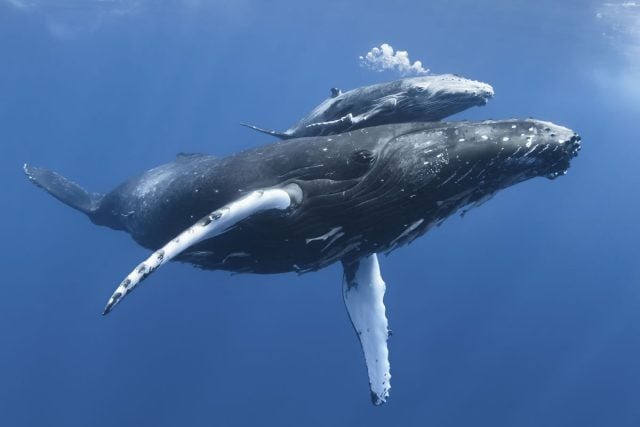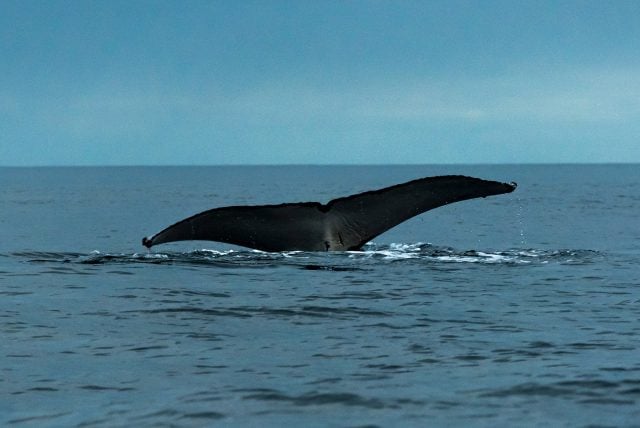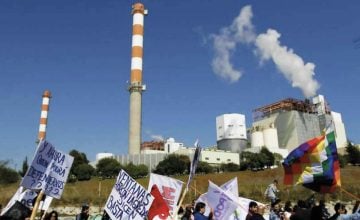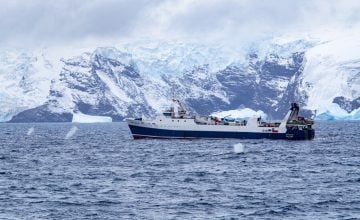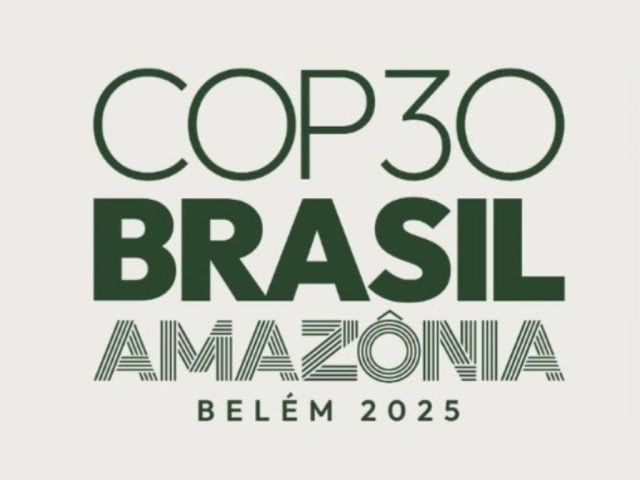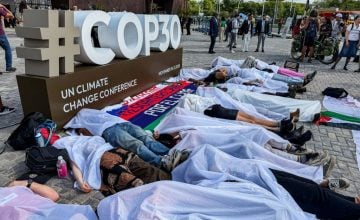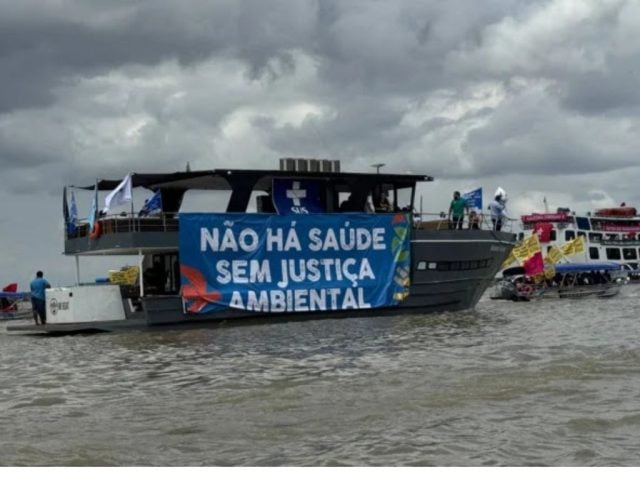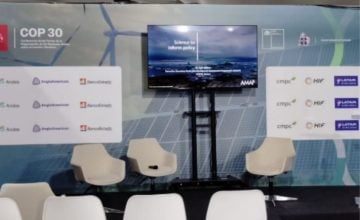Original article: COP30: Destacan aporte del ‘Corredor Azul del Pacífico Oriental’ a la acción climática
During COP30, WWF Chile emphasized the climate contributions of the Eastern Pacific Blue Corridor, a key regional initiative aimed at protecting migratory routes of marine megafauna that extends from Mexico to the Antarctic Peninsula.
This route is essential for large cetaceans, as well as dolphins, sharks, and sea turtles, species that are highly vulnerable to industrial fishing, increased maritime traffic, pollution, ocean noise, and the rapid impacts of the climate crisis.
Ricardo Bosshard, director of WWF Chile, stressed the importance of establishing migratory corridors free from threats. He explained that whales contribute to the growth of phytoplankton, a key regulator of global carbon.
From 2010 to 2019, oceans absorbed nearly 22% of anthropogenic emissions, highlighting their significance in climate mitigation and the urgency to enhance ecological connectivity, Bosshard noted.
«This is precisely what WWF aims for with the Transformational Initiative of the Eastern Pacific Blue Corridor, striving to solidify these safe routes across the ocean, integrating marine conservation as a nature-based solution,» he remarked.
This topic was further explored in the WWF Chile parallel event at COP30, titled «A Blue Corridor for Ocean Giants. From Chile to Mexico and Back,» which, along with Bosshard, gathered specialists analyzing various facets of this issue: Shirley Matheson, Global Coordinator of NDC Strengthening, and Gonzalo Muñoz, UN High Representative for Climate Change from the Presidency of COP25, who also plays a global role in advocating for a treaty against plastic pollution.
The session, moderated by María Inés Rivadeneira, leader of WWF Policy for Latin America and the Caribbean, addressed threats to cetaceans, the progress of the BBNJ agreement, the impacts of plastic, and the initiative «NDCs We Want for Oceans» that aims to strengthen the role of the ocean in regional climate policies.
Strategy Pillars
WWF highlighted the three pillars of the Blue Corridor strategy: consolidating connected conservation areas to advance the 30×30 goal; reducing the impacts of human activities through regional cooperation and science-based management; and increasing investment in conservation, research, and monitoring of whales, crucial species for ocean resilience and natural allies against climate change.
«In Latin America and the Caribbean, discussing climate action without considering the ocean ignores the heart of our resilience. This vast ecosystem supports economies, protects millions of people, and regulates the climate with a silent yet decisive force. Explicitly and ambitiously integrating it into NBSAPs and NDCs is not a symbolic gesture: it is a strategic necessity for the region,» stated Ricardo Bosshard.
«The Eastern Blue Corridor demonstrates that when we work with a vision of scale and cooperation, we can safeguard migratory routes, recover populations, strengthen fisheries management, and tourism activities, thereby supporting coastal communities dependent on these endeavors. The health of the ocean determines the health of our territories,» he added.
For his part, the UN High Representative for Climate Change, Gonzalo Muñoz, recalled that «whales play a climate role and are vital for biodiversity management, and we now know that these large animals traverse zones affected by vessel collisions, general pollution, especially plastics, fishing nets or ghost nets, and by ocean acidification and rising temperatures.»
«Therefore, it is crucial and urgent to create these corridors where these animals can migrate safely and healthily. Today, Chile, along with other Pacific coastal countries, is promoting these corridors, which we must protect for everything they imply for the health of the ocean and the planet, and also for ourselves,» expressed Muñoz.
Read more about the Eastern Pacific Blue Corridor here (WWF Chile)
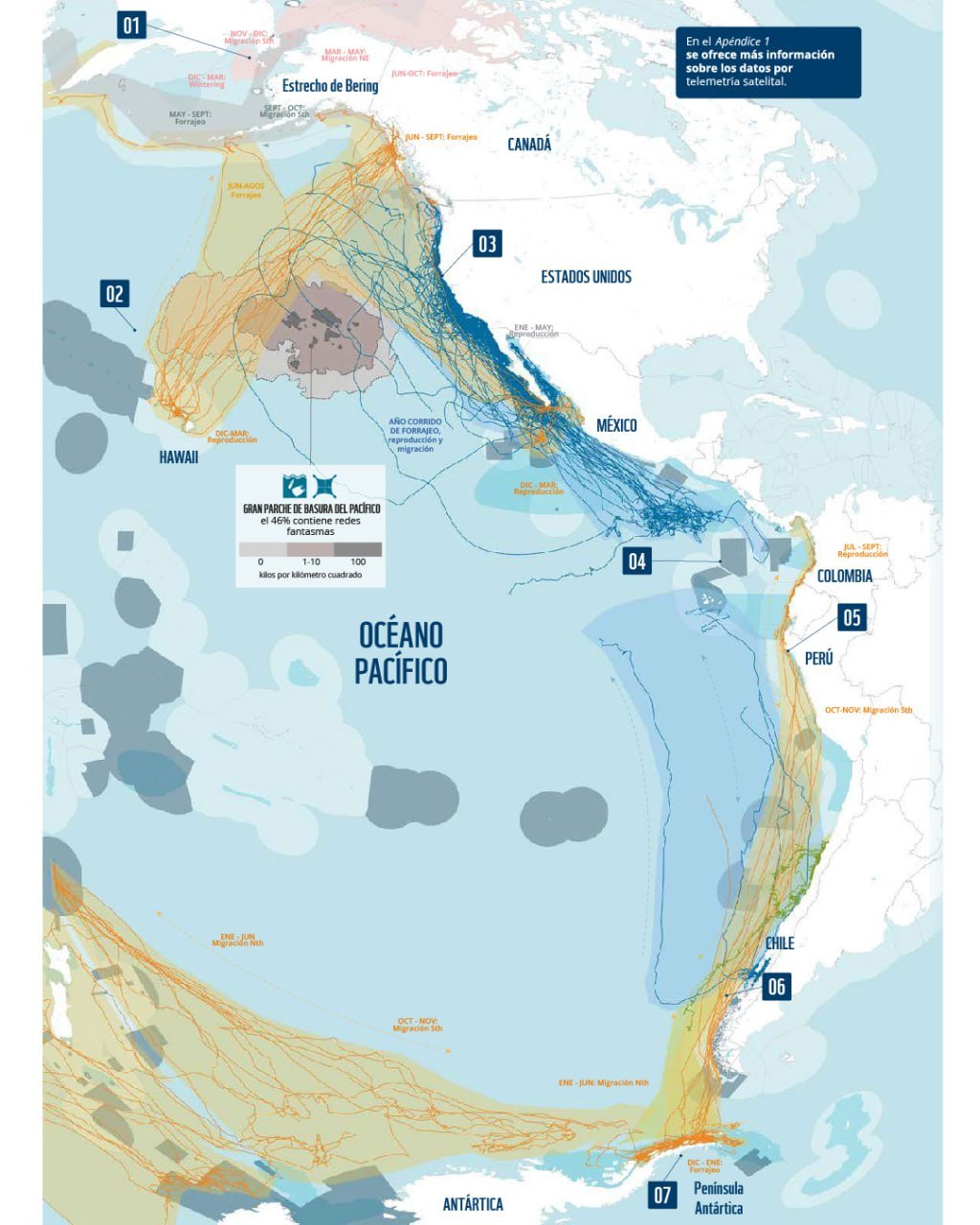
El Ciudadano
